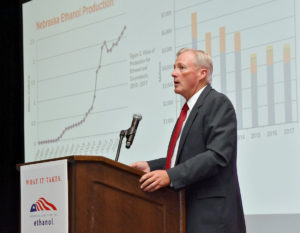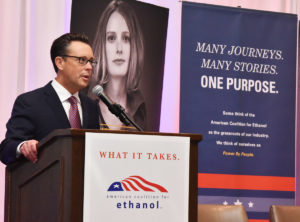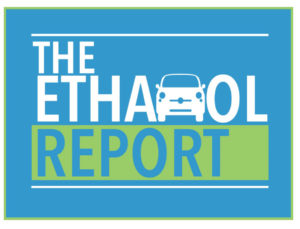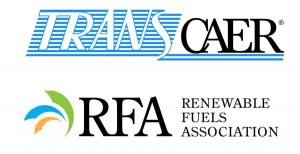Low carbon and high octane are the future for ethanol, according to leaders of the American Coalition for Ethanol speaking Thursday at their annual conference in Omaha.
 ACE Board President Duane Kristensen of Chief Ethanol in Nebraska said that as the agriculture and ethanol industries are dealing with challenging market conditions, things have to change. “With uncertainty surrounding the RFS and trade negotiations, we must engage in meaningful dialogue to find ways to increase demand for ethanol in our fuel supply domestically with E15 and higher ethanol blends, as well as in markets around the globe that are beginning to recognize ethanol’s high octane and environmental benefits in renewable fuels policies,” Kristensen said.
ACE Board President Duane Kristensen of Chief Ethanol in Nebraska said that as the agriculture and ethanol industries are dealing with challenging market conditions, things have to change. “With uncertainty surrounding the RFS and trade negotiations, we must engage in meaningful dialogue to find ways to increase demand for ethanol in our fuel supply domestically with E15 and higher ethanol blends, as well as in markets around the globe that are beginning to recognize ethanol’s high octane and environmental benefits in renewable fuels policies,” Kristensen said.
Listen to his remarks here:
ACE Board President Duane Kristensen opening remarks
 ACE CEO Brian Jennings acknowledged the positive development of year-round E15, but pointed out the good news is being undermined by the bad and said now is the time for new strategy. “We’ve come to the conclusion we cannot merely play defense on the RFS and hope trade wars subside. We need to turn the page, to go on offense. We need a new vision for how to increase demand for ethanol and break free from the status-quo,” Jennings said.
ACE CEO Brian Jennings acknowledged the positive development of year-round E15, but pointed out the good news is being undermined by the bad and said now is the time for new strategy. “We’ve come to the conclusion we cannot merely play defense on the RFS and hope trade wars subside. We need to turn the page, to go on offense. We need a new vision for how to increase demand for ethanol and break free from the status-quo,” Jennings said.
“Combining ethanol’s high octane and low carbon strengths into a new growth strategy not only allows us to go on offense, it gives our champions in Congress something to be for as the discussion about climate change begins to ramp up in Washington,” Jennings added. “ACE members have what it takes to make things happen.”
Listen here:
ACE CEO Brian Jennings opening remarks
2019 ACE Conference Photo Album
 A panel at the 2019 American Coalition for Ethanol Conference in Omaha shared the potential benefits of investing in the emerging carbon economy and new opportunities on the horizon.
A panel at the 2019 American Coalition for Ethanol Conference in Omaha shared the potential benefits of investing in the emerging carbon economy and new opportunities on the horizon.











